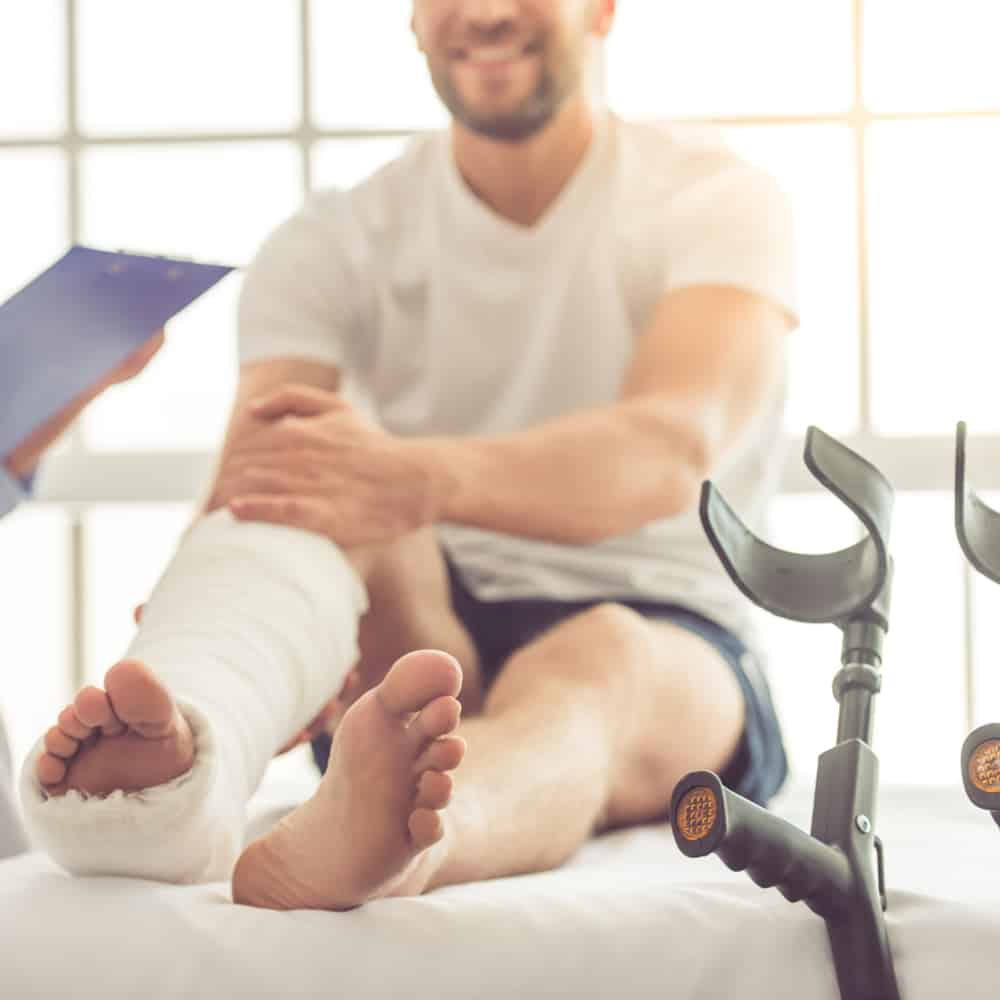Workers Compensation

Heal Your Injuries From Work
You don’t often think about going to work. You wake up in the morning, prepare yourself for the day, enter your car, drive to work, spend the day getting your work done, hop in your car again, and go home. Many of us do that five days a week every week for most of our lives. At this point, it feels like second nature to us. It’s the same thing happening every day. But what if something changes?
Anyone can suffer from an auto accident and require medical care, and it often happens in the blink of an eye. Whether you face a serious injury, like broken bones or lacerated skin, or not, you may find yourself spending the day at an emergency room rather than the office. A trip to your primary care physician is no one’s idea of a good day. This is especially true if the type of injury you suffer is long-term. However, do things change when you suffer from work-related injuries?
Maybe you drive a company car or work at a construction site where you operate vehicles. Even if you don’t work a job that many consider high-risk, you can still suffer from an accident while on the job. What are the next steps you need to take after you suffer from a work-related injury?
If you find yourself in an auto accident, you should first evaluate your injuries. Do you need to seek out accident doctors right away? If you have broken skin, you need to call for an ambulance. However, you should still see a doctor for medical treatment even if you don’t think you have a serious injury. You may not notice some injuries immediately. For example, concussions can be dangerous and cause brain damage if you don’t treat them. If you have trouble concentrating, memory issues, blurry vision, or nausea, you should call your primary care doctor.
Relief, Remedy, Recovery.

What To Do When You Get An Injury From Your Job
If you don’t take an ambulance to the emergency room after your accident, you should still set up an appointment with your doctor. However, it’s important to note that your primary care physician may not examine you after your car accident. While a treating physician trained in car accident care can pinpoint your injuries and help you with pain management, your primary doctor won’t have the same knowledge. Therefore, they don’t want to dismiss your pain only to find a serious injury pop up down the line. So they may recommend you to a health care physician trained to help after accidents. And if you’ve suffered from work-related injuries, they’ll recommend you to a workers’ compensation doctor.
Compensation doctors can evaluate your injuries and help you put together your workers’ comp claim based on your accident injury. At this point, you should consider looking for personal injury attorneys to help your claim.
We have some tips for meeting with your workers’ compensation doctor and what to do. For one, your employer’s insurance company may request that you receive an independent medical examination. While we use the word request, you may have your claim denied if you fail to complete this examination. The independent medical examination is one of the most important factors related to your workers’ comp claim.
During an independent medical examination, your doctor will evaluate your level of pain and suffering. They will ask you questions about your previous medical history, how the accident has affected your daily life, and they’ll perform tests. They do this to ensure you tell the truth about the extent of your injuries.
While many accident victims want to exaggerate their symptoms to ensure they make their best case, you should always be honest about your pain. These doctors who participate in independent medical examinations have training that allows them to determine when people don’t tell the truth. Their questions and tests can prove that your injuries aren’t as detrimental to your daily life as you expressed to the doctor; therefore, you may lose your workers’ comp claim.
Getting The Right Help For Workers Compensation
Also, you should never lie about your previous medical history during an examination. While you may think leaving out a few details will help your case, it will come out eventually. Therefore, stay open and honest with your doctor. Who knows, maybe your injuries from the accident can make an old injury worse, aiding your case. So when you meet with your workers’ compensation doctor, don’t hold anything back.
However, the only thing you should hold back is negative comments against your employer. While you may have some resentment, especially with a work-related injury, you want to avoid talking badly against them. Everything you say may come back to your employer’s ears, so don’t say anything you wouldn’t say to them.
One of the most important factors that come out of an independent medical examination is the doctor will determine if you can return to work yet. On top of ensuring you receive a proper diagnosis, they can tell your employer whether your injuries keep you from working. Unfortunately, working while hurt can further your injuries, causing long-term issues. Therefore, the doctor’s evaluation can impact the rest of your life. So tell them everything, explain your past injuries and symptoms, and ensure you get your workers’ comp claim.
Car accidents and work-related injuries are scary, especially if you don’t know where to go from here. Once you see a workers’ compensation doctor, you need to search for personal injury attorneys. They can get you all the compensation you deserve for your injuries. So push through the doctor appointments; it will pay off in the end.
